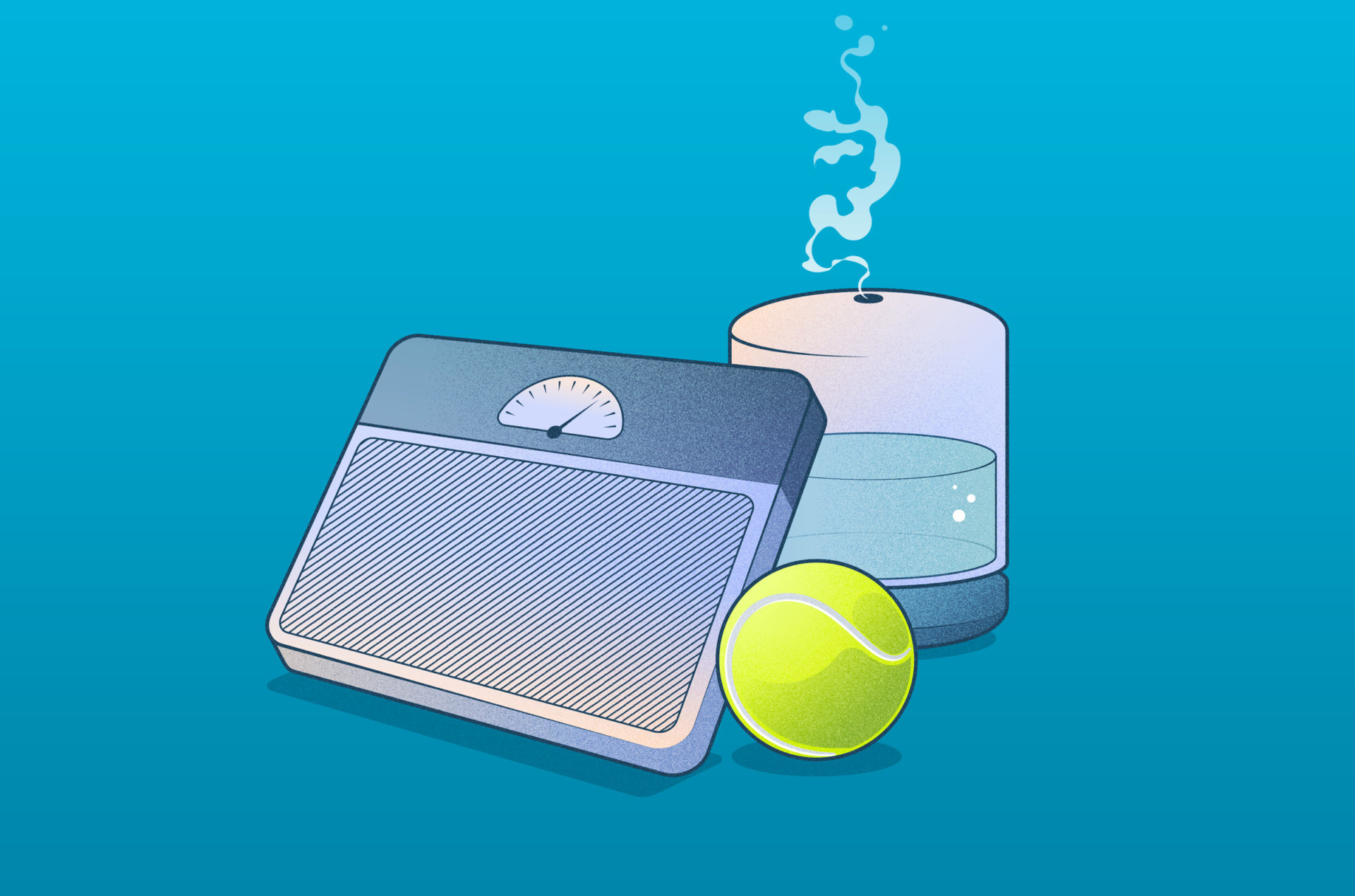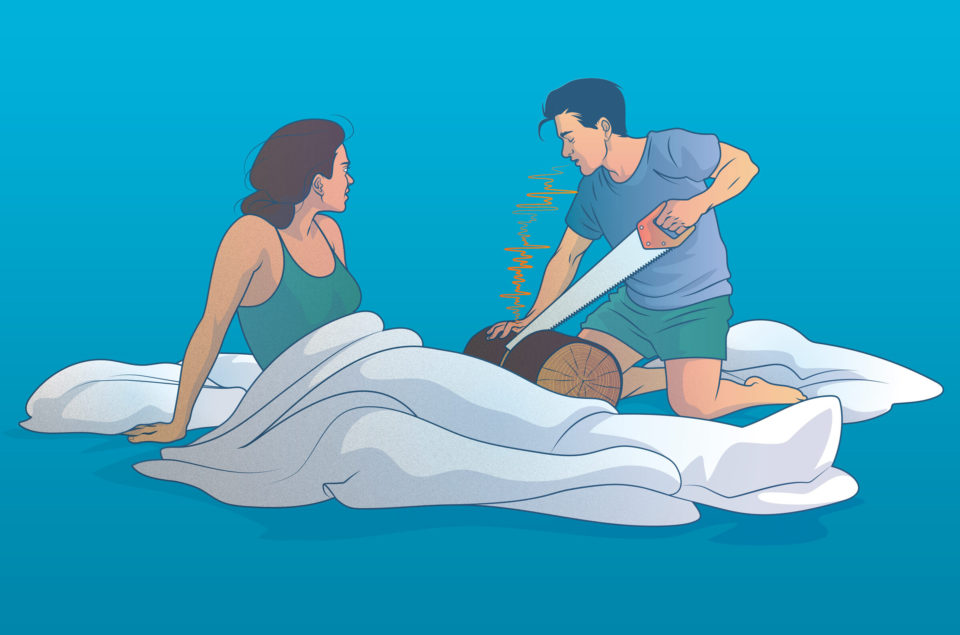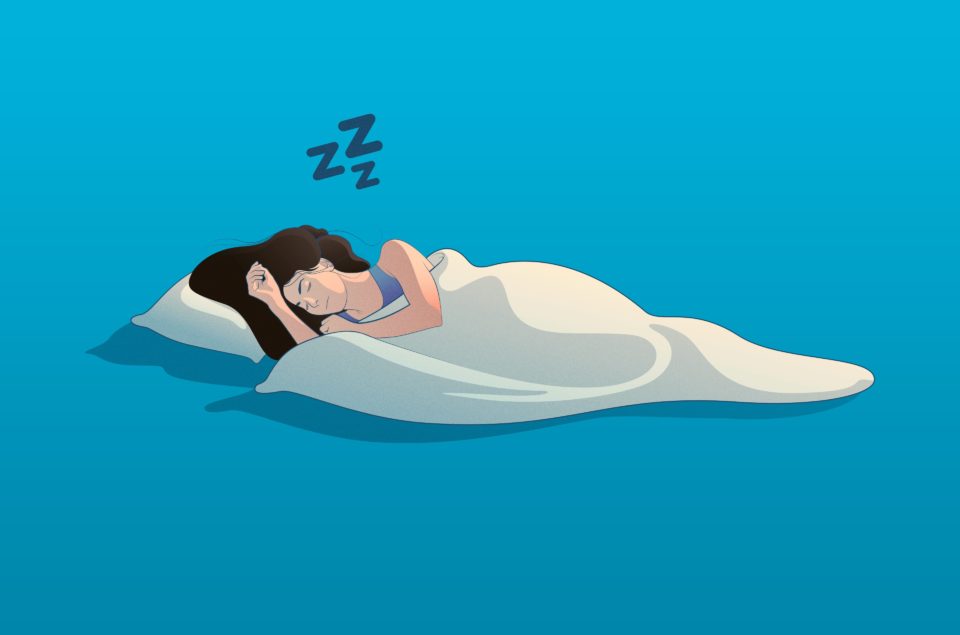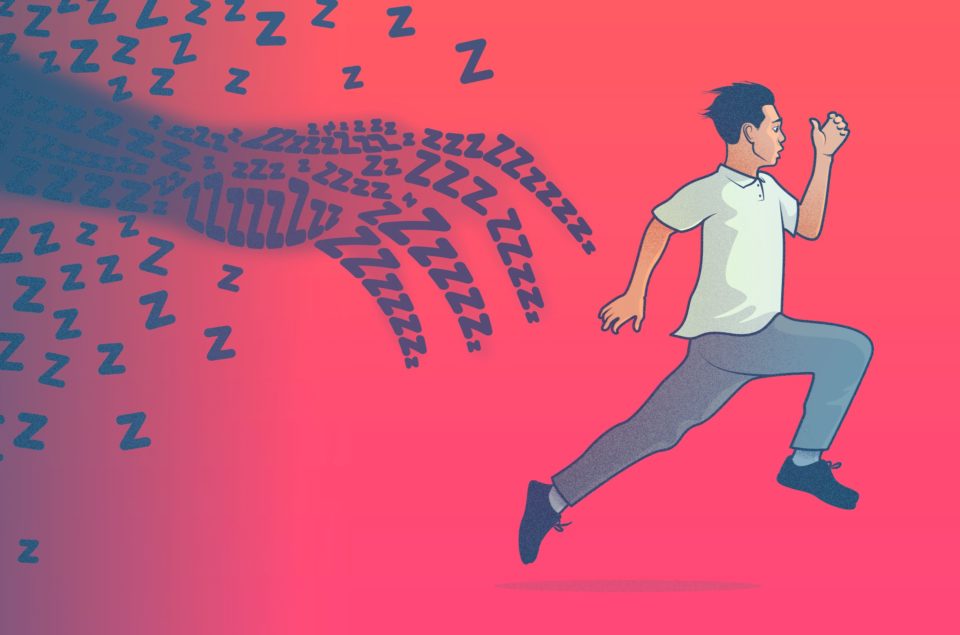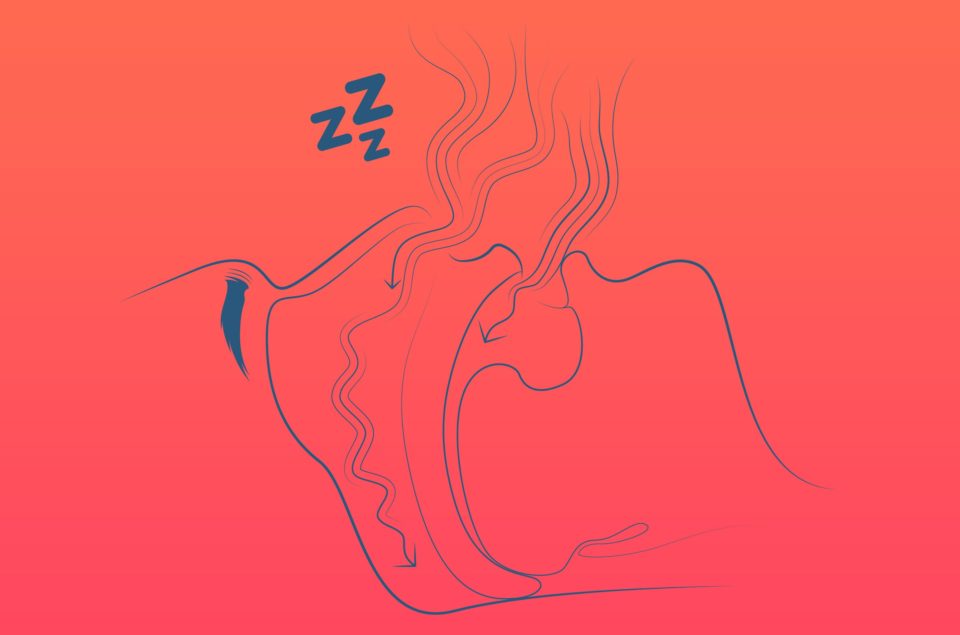We are all familiar with snoring. If we are not the main culprits of this noisy nighttime problem, we know someone who is. Snoring affects about half of our population, and 25% of us are habitual snorers.
In this article, we will cover:
- How to stop snoring: 10 Natural snoring remedies that can help
- Which snoring remedy is right for me?
- What causes snoring?
10 natural snoring remedies that can help
There are a couple of ways to stop snoring. Some medical and some natural. Medical treatment is usually recommended for extreme scenarios. Like when your snoring results in sleep apnea. But before turning to medical treatment try out these ten natural snoring remedies that work like a charm.
1. Lose some weight.
People who are overweight are two times more likely to snore than those who aren’t. The reason is simple, overweight people carry extra fat around their necks which narrows their airways and causes them to snore. So, lose a couple of pounds and lose your noisy nighttime companion. Switching up your diet, getting some exercise and ironically enough sleep will help you lose weight.
2. Change your sleeping position.
Sleeping on your back can cause your airways to become blocked or narrowed. If you notice that you snore while sleeping on your back it is time to switch up your sleeping position. Sleeping on your side is usually recommended. Old habits die hard so the odds are that as you drift deeper into sleep you’d roll unto your back again. The fix? Invest in a body pillow. A body pillow will help you maintain sleeping on your side. Another mean old trick is sewing tennis balls unto the back of your pajamas.
3. Get to know your own snoring patterns.
All change starts with knowledge. Sleep Cycle helps track your snoring patterns. Finding out more about when and where you snore, as well as what might be causing you to snore more, is the first step towards trying to make a change.
4. Quit smoking and avoid alcohol.
If you drink alcohol habitually, especially before bed that might be the cause of your snoring. Drinking alcohol a couple of hours before you go to bed relaxes your throat muscles, causing you to snore. Regular smokers are also likely to snore. Smoking irritates your throat tissues leading to inflammation, which results in snores.
5. Drink more water.
Staying hydrated is always a good idea, particularly for snorers. Dehydration leads to mucus forming in your nose which could make you snore. Drinking about 3.7 liters of water for men, and about 2.7 liters of water for women is highly recommended.
6. Treat yourself to a humidifier.
While dry air might not be the main cause of your snoring, it can certainly aggravate it. So get a couple of humidifiers to keep the air in your room nice and moist. The added moisture in the air will help lubricate your throat. Making it easier for air to flow in and out without causing any noisy vibrations.
7. Exercise to prevent weak tongue and throat muscles.
You snore when your tongue and throat muscles are too relaxed. Strengthening them would help you stop. There are a couple of exercises which could help you strengthen you do this. A great and easy hack to get some throat exercise in is singing. So throw yourself a concert in the shower or in your car. Your partner or roommates might find it annoying but it’ll be less annoying than your snoring. To work out your tongue, place the tip of your tongue behind the top of your teeth and slide it back and forth for a couple of minutes a day.
8. Examine your diet and cut down on inflammatory food.
Dairy and gluten products are well-known culprits for causing tissues in your nose and throat to become inflamed. You don’t have to completely cut out that yummy glass of chocolate milk you have every day. Pick out some days where you have some plain tea instead and don’t have it too soon before bed.
9. Get some steam in.
Use a facial steam bowl to open up your airways just before you go to bed. This comes in especially handy if a stuffy nose from a cold or allergies is the cause of your snoring. First, fill a large bowl with hot water. Next, drop your head over it. Get close enough for the steam to do its job but not too close so you don’t get burned. Drape a towel over your head to lock in the moisture. Taking a warm bath or a hot shower also has the same effects.
10. Get enough sleep.
Exhaustion can relax your throat and tongue muscles and cause you to snore. It’s important to get 7 to 9 hours of sleep every night. Ironically sleeping pills and sedatives also have the same effect on your throat and tongue muscles. So if you have trouble sleeping you might want to explore some natural home remedies before reaching for those pills.
Bonus remedy: Elevate your head while you sleep.
If sleeping on your side instead of your back doesn’t stop your snoring, you might need to prop up your head a little bit. This will ease breathing and open up your airways. Using a pillow or two should do the trick. You could also slightly the front of your bed by a couple of inches.
Which snoring remedy is right for me?
Try them all. One after the other until you find one that sticks. Instead of getting stuck in an endless loop of trying different remedies, track your sleep, and keep a sleep diary. It’ll help you get a better idea of your sleep patterns and habits.
What causes snoring?
When we go to sleep, our neck muscles relax. Sometimes they can be too relaxed. This causes your upper airway i.e. nose and throat, to become too narrow for enough air to travel to the lungs. When this happens the surrounding tissue vibrates and results in sounds we recognize to be snores. The narrower your airway becomes, the greater the vibration and the louder the snores.
Asides from being a nuisance to your friends or your partner, snoring also affects how you sleep. It reduces the quality of your sleep, could result in sleep apnea or lead to chronic sleep deprivation. Ever woken up in the morning tired, cranky and not quite feeling like you got a good night time’s rest? Snoring might be the cause. The good news is there are natural snoring remedies that can help.
Identifying the cause is very key in figuring out how to stop snoring inmediately. Some factors come into play here:
- One popular one is weight. Carrying excess weight around your neck and throat can cause snoring. Then there is good old biology. In general, men have narrower air passages than women and are most likely to snore.
- Sleeping flat on your back could also make you more susceptible to snoring. Even the shape of your mouth or a stuffy nose from a cold could make you sound like an old engine revving up.
- Another one is the structure of your entire nasal cavity. Deviated septums, nasal polyps and enlarged tonsils could be the cause of your snoring.
- How you snore could also be telling of why you snore. If you snore with your mouth closed, you could be snoring because of a problem with your tongue. While if you snore with your mouth open, a problem with your throat could be the cause of your snoring.
Gain insights into how to stop snoring & your personal habits
If you sleep with a partner, we are pretty sure you must have gotten more than a complaint or two about your snoring. But what if you sleep alone? It’s simple, record yourself while you sleep. Apps like Sleep Cycle have a great snore tracker feature. The tracker measures the sound of your snores and the effect snoring might have on your sleep quality.
